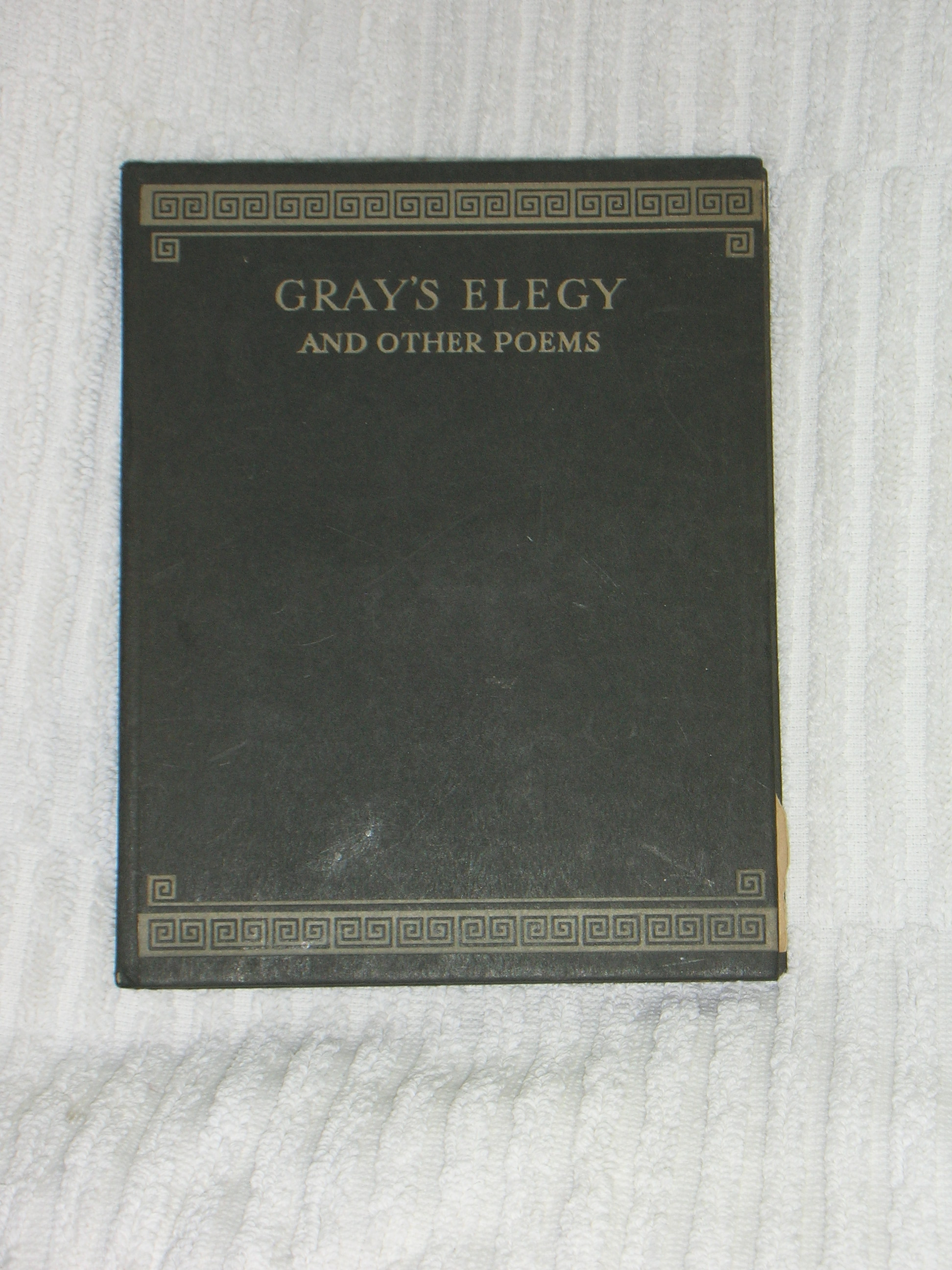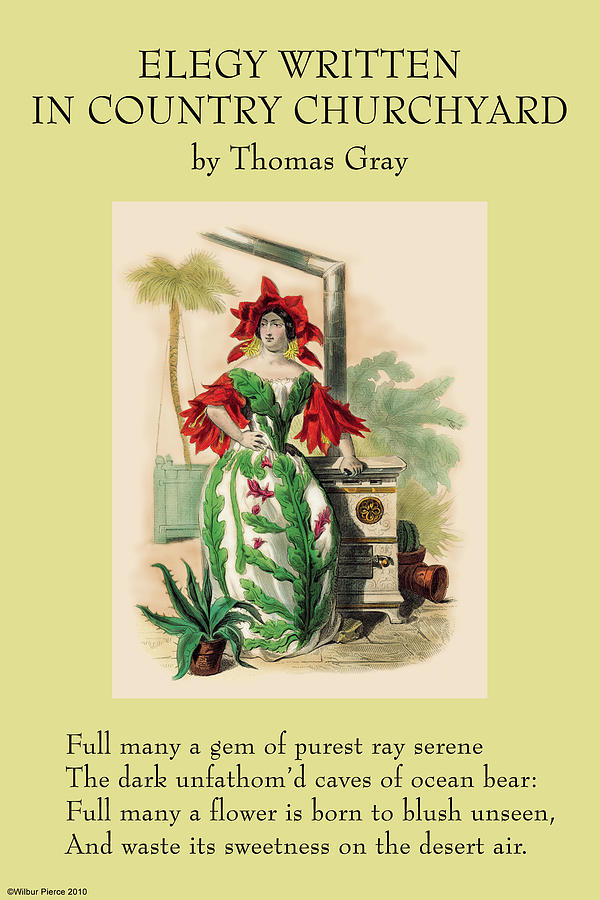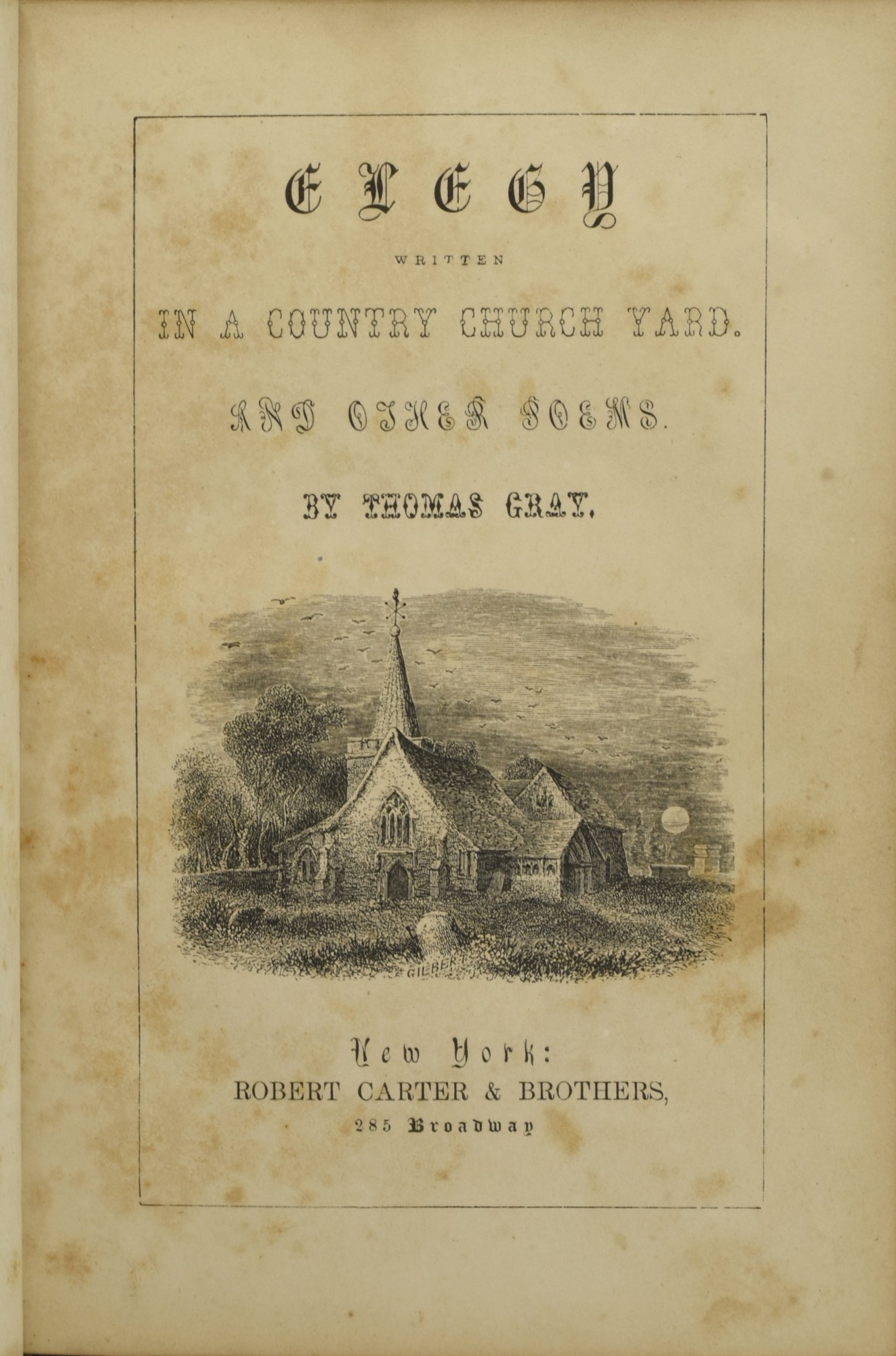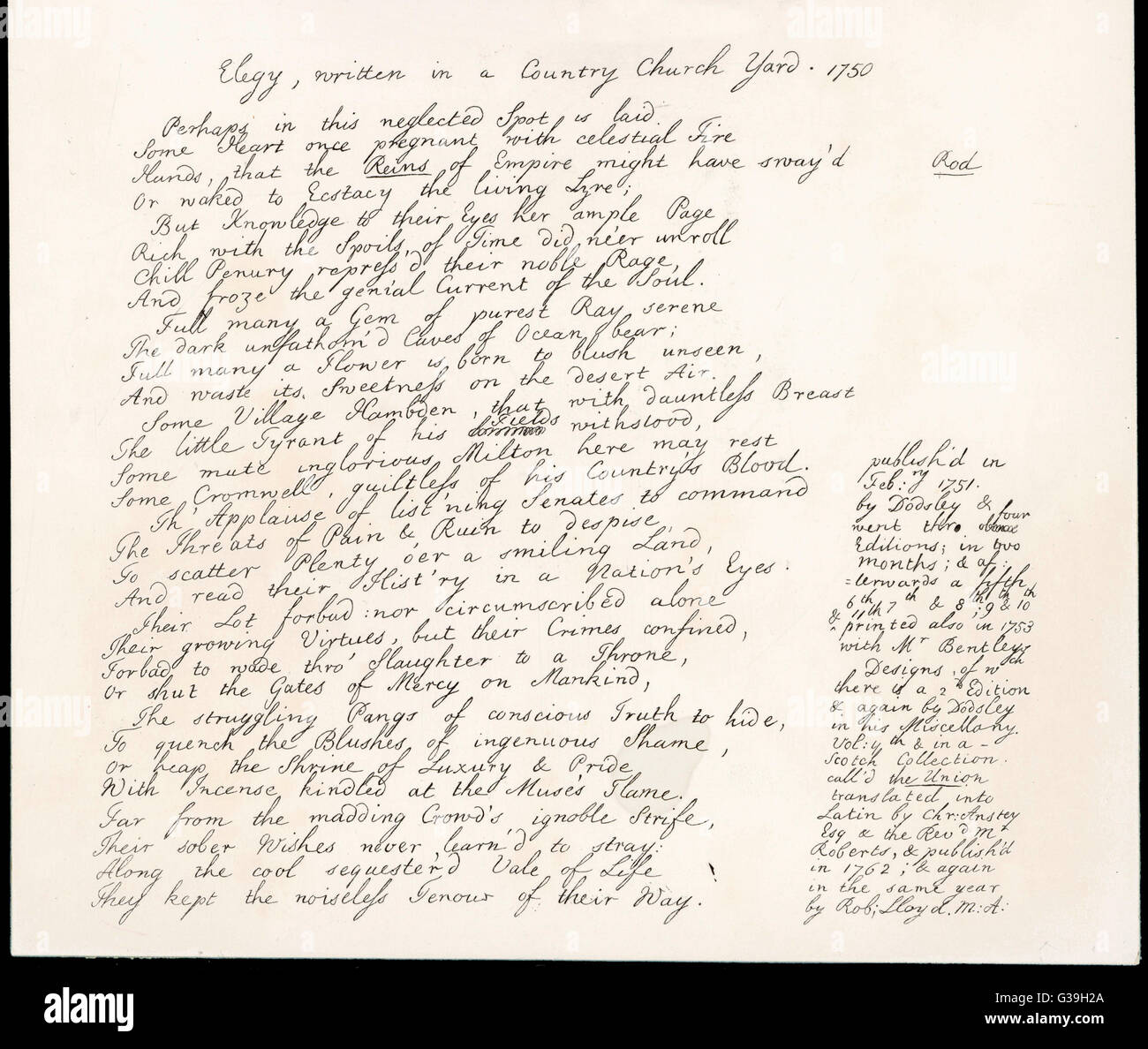
Elegy Written in a Country Churchyard by Thomas Gray
Elegy Written in a Country Churchyard. 1 The curfew tolls the knell of parting day, 2 The lowing herd wind slowly o'er the lea, 3 The ploughman homeward plods his weary way, 4 And leaves the world to darkness and to me. 5 Now fades the glimmering landscape on the sight,

Elegy written in a Country Churchyard Thomas Gray English Grammar A To Z
The poem 'Elegy Written in a Country Churchyard' consists of 33 stanzas. Each stanza has four lines. As an elegy, this poem mourns the death of ordinary men. In this poem, Gray talks about the death and the lives of the middle-class people, the poem follows all the conventions of the elegiac tradition. Scholars look at this poem as a.

Elegy Written in a Country Churchyard Canvas Wall Art Prints Gallery Wrap Canvas
Resources. "Elegy Written in a Country Churchyard" is the British writer Thomas Gray's most famous poem, first published in 1751. The poem's speaker calmly mulls over death while standing in a rural graveyard in the evening. Taking stock of the graves, he reflects that death comes for everyone in the end, and notes that the elaborate tombs of.

Elegy Written in a Country Churchyard Poetry English Literature
Elegy Written in a Country Churchyard. By Thomas Gray. The curfew tolls the knell of parting day, The lowing herd wind slowly o'er the lea, The plowman homeward plods his weary way, And leaves the world to darkness and to me. Now fades the glimm'ring landscape on the sight,

Elegy Written in a Country Churchyard Thomas Gray (Poem)
Yes, yes, and yes. First, here's a reminder of the text of 'Elegy Written in a Country Churchyard', before we move on to explain 1) why it isn't an elegy, 2) why Gray didn't want it published, and 3) how an obscure poet who died young helped to sow the seeds of this great poem. Elegy Written in a Country Churchyard.

Elegy Written in a Country Churchyard Themes and Analysis Thomas Gray Elegy Poem
Thomas Gray's "Elegy Written in a Country-Churchyard" (1751) is one of the most widely and frequently translated/paraphrased/imitated poems in the English language. With to date at least 266 translations into at least 40 languages, the "Elegy" has inspired translators since the early 1760s when the earliest Latin translations appeared.

Elegy Written in a Country Churchyard and Other Poems by GRAY Thomas Very Good Hardcover (1928
From Gray's "Elegy Written in a Country Churchyard" The curfew tolls the knell of parting day, The lowing herd wind slowly o'er the lea, The ploughman homeward plods his weary way, And leaves the.

Elegy Written in a Country Churchyard Painting by Thomas Gray Fine Art America
Elegy written in a country church yard. And leaves the world to darkness and to me. Molest her ancient solitary reign. The rude Forefathers of the hamlet sleep. No more shall rouse them from their lowly bed. Or climb his knees the envied kiss to share. How jocund did they drive their team afield!

Thomas Gray, Elegy in a Country churchyard Ploughmans, Elegy, Weary
Notes. 1] First published, anonymously, 1751, under the title "An Elegy wrote in a Country Churchyard." The date of composition of the Elegy, apart from the concluding stanzas, cannot be exactly determined. The sole authority for the frequently repeated statement that Gray began the poem in 1742 is Mason's conjecture in the memoir prefixed to.

ELEGY WRITTEN IN A COUNTRY CHURCH YARD, AND OTHER POEMS par Thomas Gray Very Good binding Full
A meditation on unused human potential, the conditions of country life, and mortality, An Elegy Written in a Country Church Yard is one of the best-known elegies in the language. It exhibits the gentle melancholy that is characteristic of the English poets of the graveyard school of the 1740s and '50s. The poem contains some of the best-known.

️ Elegy written in a country churchyard. Poem of the week Elegy Written in a Country Churchyard
Thomas Gray began to write "Elegy Written in a Country Churchyard" in 1742, shortly after the death of Gray's friend Richard West, and published it in 1751. An elegy is loosely defined as a.

Part of the manuscript of his poem, 'Elegy Written in a Country Church Yard', Stock Photo
Elegy Written in a Country Churchyard is a poem by Thomas Gray, completed in 1750 and first published in 1751. [1] The poem's origins are unknown, but it was partly inspired by Gray's thoughts following the death of the poet Richard West in 1742. Originally titled Stanzas Wrote in a Country Church-Yard, the poem was completed when Gray was.

English Poem, Elegy Written in a Country Churchyard by Thomas Gray, Easy explanation for exams
In these lines from Elegy Written in a Country Churchyard by Thomas Gray, the poet introduces a picturesque image of a tower covered in ivy and describes the mournful cry of an owl. The tower, adorned with ivy, adds a sense of antiquity and mystique to the scene. The use of "moping owl" creates an image of a sorrowful or brooding owl, contributing to the overall melancholic tone of the poem.

Part of the manuscript of Thomas Gray's poem, 'Elegy Written in a Country Church Yard', inspired
Introduction. Thomas Gray's "Elegy Written in a Country Churchyard," first published in 1751, stands as one of the most beloved and enduring poems in English literature. Combining elegiac and pastoral elements, the poem eloquently contemplates the transient nature of life, the equality of death, and the legacy left by ordinary individuals.

️ Elegy written in a country churchyard. Poem of the week Elegy Written in a Country Churchyard
Contents: Transcript, entitled "An elegy written in a country churchyard", in a late 18th century, anonymous Commonplace Book (4 vols.), which contains more than 1100 numbered extracts from works by various authors; a number of the poems are signed or initialed by William Warren Porter (1776-1804) or his sister, so possibly the books were compiled by a member of the Porter family.

Lot Elegy Written in a Country Churchyard, With the Complete Poems of Thomas Gray
His poem was a literary sensation on its publication in 1751 and remains frequently quoted to this day. It is likely that Gray wrote the elegy in the churchyard of St Giles, Stoke Poges in.
- Legenda Aurea Di Jacopo Da Varagine
- 27 Gennaio Giorno Della Memoria 2024
- Nato A Casal Di Principe
- Traghetti Per La Sicilia Da Livorno
- Castello Rosso Costigliole Saluzzo Storia
- Profumo Zucchero Filato E Vaniglia
- Bonnie E Clyde Chi Sono
- Coniglio Al Forno Con Patate Alla Pugliese
- American Horror Story 10 Trama
- Ognuno Ha Quel Che Si Merita Significato
